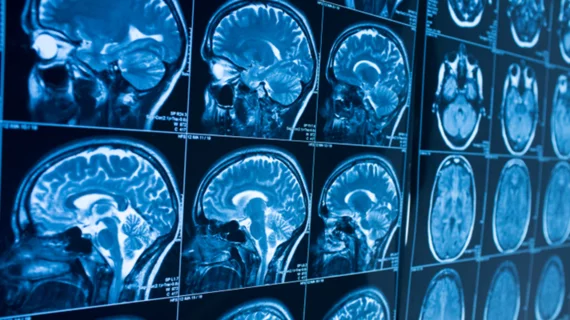Brain imaging may be a critical tool to the future of mental health care
Psychiatrists typically rely on subjective information to diagnose patients with a mental illness, but researchers from Tokyo believe medical imaging and artificial intelligence can bring some much-needed certainty to the process.
A group of University of Tokyo experts recently detailed their experience using machine learning to read hundreds of MRI scans in Translational Psychiatry. The algorithm distinguished between neurologically typical brains and patients with autism spectrum disorder and schizophrenia. In a majority of instances, the AI diagnosis matched that of a trained professional.
Senior author of the study, Shinsuke Koike, MD, PhD, said their approach could bring some modernity to the process and redefine the standard for diagnosing mental illnesses.
"Psychiatrists, including me, often talk about symptoms and behaviors with patients and their teachers, friends and parents. We have to make medical conclusions using subjective, secondhand information," Koike, a professor at the Japanese university, added in a statement. "Frankly, we need objective measures.”
To create their algorithm, a multidisciplinary team collected MRI brain scans taken from 206 Japanese patients who were either diagnosed with autism spectrum disorder, schizophrenia, considered high risk for the latter disease, or experienced their first episode of psychosis. Volunteers with no mental health problems were also included in the group, which consisted of about half men and half women.
Six different methods were trained to key in on variations in thickness, surface area, or volume of brain areas on MRI scans. After training, Koike et al. tested their approach on images from another 43 patients. It proved highly reliable, matching psychiatrists’ assessments with 85% accuracy.
The thickness of the cerebral cortex was the most useful feature for identifying those with autism spectrum disorder, schizophrenia, and healthy patients, the group noted.
"Autism spectrum disorder patients have a 10-times higher risk of schizophrenia than the general population,” Koike added in the statement. “Social support is needed for autism, but generally the psychosis of schizophrenia requires medication, so distinguishing between the two conditions or knowing when they co-occur is very important.”

